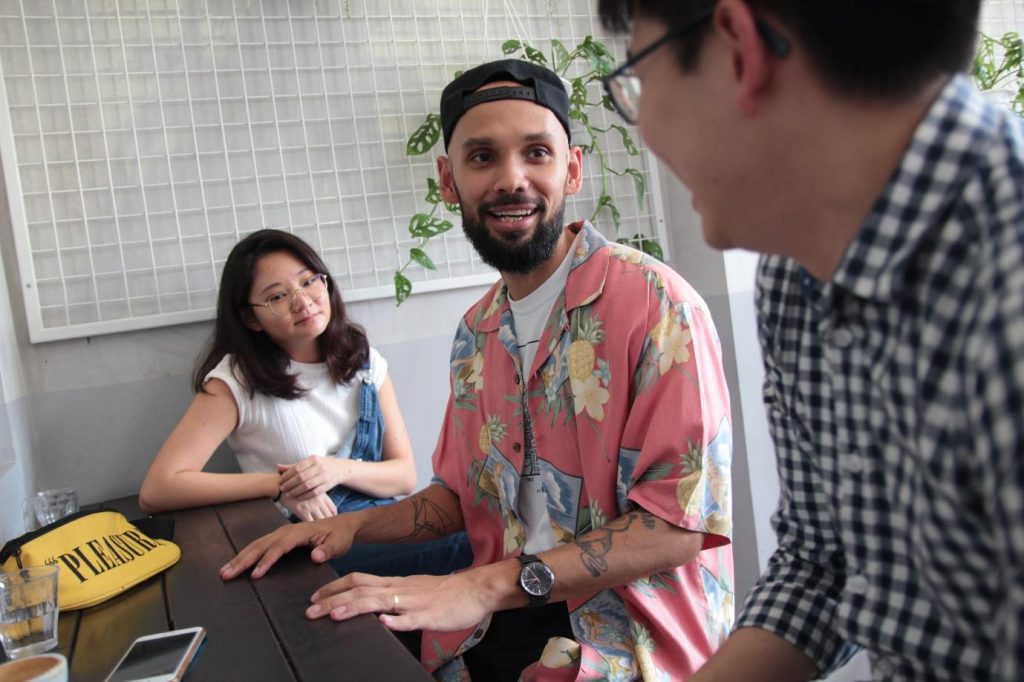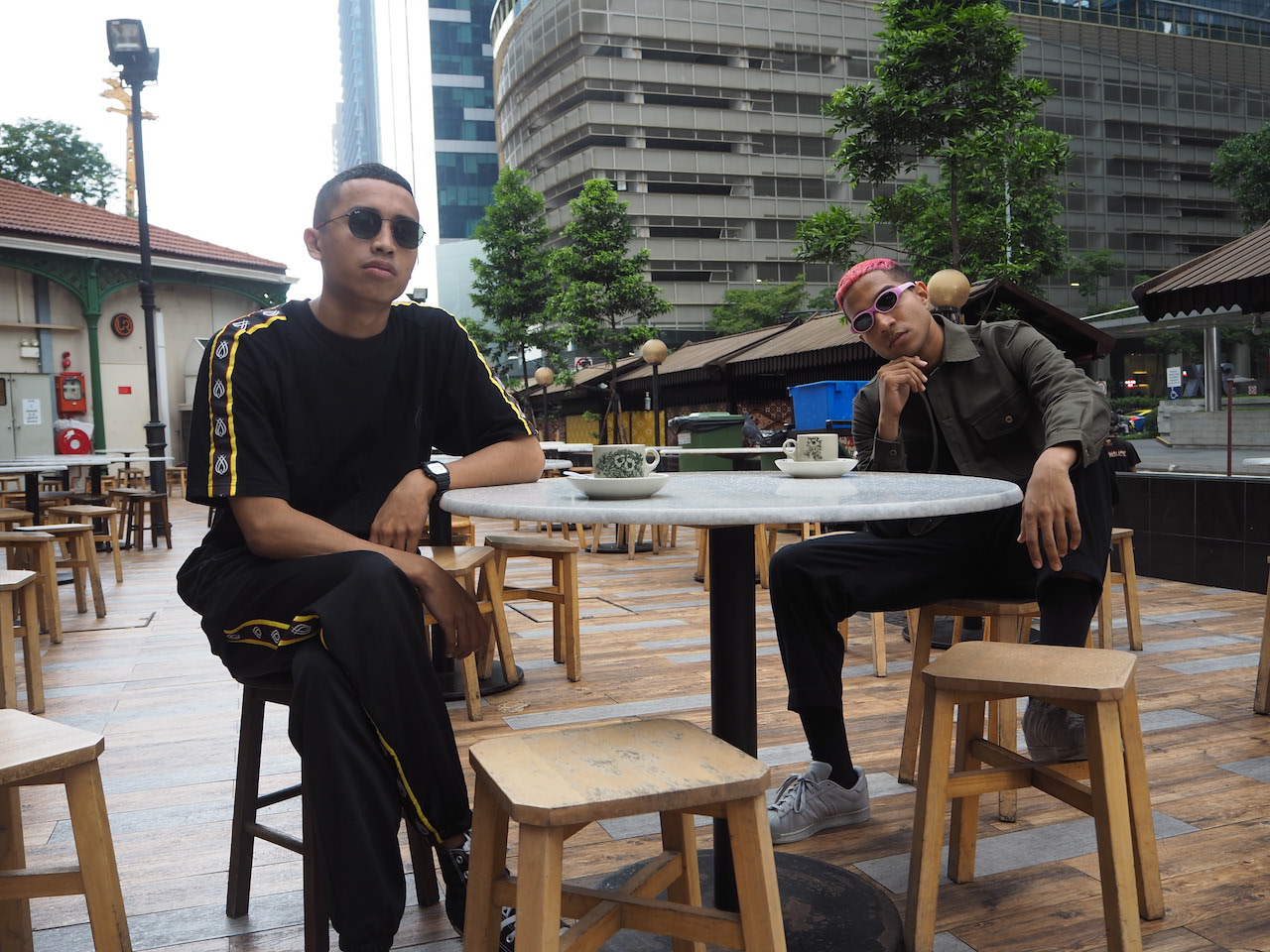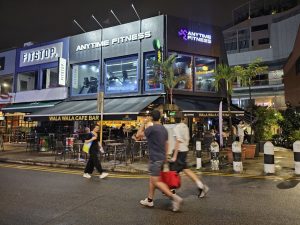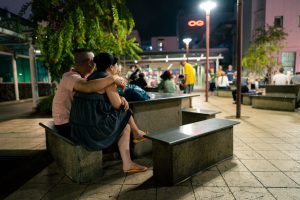
As rap music grew as a genre, so did its influence on American culture, shaping the language, customs, and fashion of American youth. Words like “finna”, “ho”, and “wildin’” are lifted directly from the rap dictionary. The popular urban fashion of today is an evolution from the street wear of hip hop icons like Wu Tang Clan and Diddy.
Rap today is a global language. Its influences extend far beyond its roots in America, finding their way into music made all over the world. We hear echoes of hip hop rhythms and styles in South African Kwaito, UK grime, and even in music from Korea and China.
It is no surprise then that rap has made its way into Singaporean-produced music. Our tiny island fosters a healthy hip hop scene that is steadily growing in popularity. ‘Masa’, an absolute banger by Fariz Jabba, boasts a whopping 1.6 million plays on Spotify. Even our recent NDP track ‘Our Singapore’ featured a segment dedicated to local rappers.
Yet given rap’s roots, we can’t help but ask: what is Singapore rap?
After all we don’t live in the grimy, messy streets of Harlem and the Bronx—we live in organised HDB flats and condominiums. Our lives (generally) aren’t in danger of being ended tomorrow by gangland shootings. Most importantly, unlike the freedom for dissidence our American counterparts enjoy, we live in a society where many topics are still considered taboo.
What is Singapore rap, then? Is it merely a commercialised transplantation of a global music trend or is there something inherently Singaporean about the way local musicians interpret the genre? Is there anything local rap can tell us about our identity as Singaporeans?
On Nick watching ‘All That’, now i’m spazzing out like i’m on crack
Got the place all red like a RAW set, your fake love throw it all back– Axel Brizzy, ‘Man on a Mission’
“There is no genre in Singapore that represents Singapore as much as hip hop,” THELIONCITYBOY, aka. Kevin Lester confidently declares, sipping a piccolo latte from a café in Tanjong Pagar.
As one of the pioneers of Singaporean rap, his opinion is definitely one I respect, although I wasn’t sure it was one I bought immediately. When listening to our local rap artists, it’s evident that internationally popular sounds have had a great influence.
THELIONCITYBOY himself is no different. His discography is a clear melting pot of various influences from modern rap music, ranging from the cheerful in “YAYA”, to the The Weeknd-esque minor chord melodies in “Paradise”, to the hard-hitting Atlanta-style trap beats in “2 The Max” and “New Bounce”. His moniker, THELIONCITYBOY, was inspired by Kid Cudi calling himself The Cleveland Kid.” He references movies like Mrs Doubtfire and basketball players like Nick Young.
So … are we just copying?
No, we aren’t. Our rap music reflects the reality that our Singaporean identity is extremely Western-oriented. Our entertainment diet consists mostly of American and British movies and television. We eschew our long-suffering footballers in the S-League for the glitz of the British BPL. Singapore’s Top 50 on Spotify is entirely dominated by American artistes. The Singaporean experience is remarkably international in its cultural influences—naturally, Singaporean rap would reflect the same. Kevin agrees: “In Singapore, we really are influenced by everything. You’re always taking in all these overseas sounds on radio, Spotify playlists.”
Asked about what makes the Singapore rap sound distinct from other regions, he remarks that the global music industry itself doesn’t hold distinct sounds.
“The Asian sound, the Western sound … What’s the difference? I heard a Lizzo and a South Korean song in a collab. Where is the divide, or barrier? Literally, we are all sharing the same space, we are so globalised.”
If music as a whole is becoming increasingly globalised, it’s perhaps unfair to expect a nascent Singaporean rap scene to veer differently.
There is, however, something that I expected our rappers to stay true to: our Singaporean accent. It is our most audibly distinct quality, with its singsong intonations and strange stresses in words like ‘already’. It is so distinctive that you can identify a Singaporean tourist a mile away, even when sauntering through a mall in Bangkok’s city centre. It might sound crass to the Anglicised ear, but it’s ours.

Most of our local rap scene adopt American-adjacent accents and enunciations. Of course, you can still hear the Singaporean-ness in the phrases used or the way certain words are pronounced (the word “already” comes to mind). However, anglicised cadences can often still be made out in our songs.
Why then, do Singaporean rappers not proudly reflect our accent?
You say we wanna be American, Talk and dress like black dudes when we are Singaporean
Mai kah wa kar jiao wei, We are so household your ah gong’s Favourite song is Limpeh– Shigga Shay, ‘Ang Moh Pai’
During our conversation on this rather difficult question—I was essentially accusing Singaporean rappers of being disingenuous, after all—Kevin raises a valid question: what is the Singaporean accent?
“They expect a Singaporean rapper to sound more … broken.”
Kevin recalled an incident where, after a performance, a well-meaning but ignorant fan asked him how long Kevin had lived in Singapore, and where his father was from.
“Sometimes with the way I talk, people ask stupid questions. But …” he pauses to put on his thickest ah beng accent, “Not all Singaporeans talk like this one you know?”
“But that’s not how all Singaporeans speak. And that’s not how I grew up.”
It’s true: not all Singaporeans sound the same. We often generalise Hokkien-infused slang as the de facto form of Singlish, but this ignores many communities who don’t speak Singlish the same way. Malay communities, for example, adopt very different tones and verbiage, but are still clearly speaking Singlish. Not to mention the countless Singaporeans whose accents are nowhere as pronounced as those parodied on shows like Phua Chu Kang.
Furthermore, even the most authentic-sounding Singaporeans can code switch to a more anglicised accent. I notice it in my own tone in interviews, presentations, or when talking to white people—I’m sure many other Singaporeans share the same experience. In which case, isn’t this ‘interview voice’ as authentically Singaporean as the exaggerated fare we hear in Jack Neo movies?
Perhaps the flexibility in our accent is what makes us Singaporean. Rather than expect our rappers to reflect the typical accents already milked to death in our popular media, we should accept the anglicised way our rappers sound—they simply code-switch in their verses in the same way we code-switch in daily life.
Kevin agrees. “When we talk about Singaporean identity, who are we? All of us have a different idea of what is our identity, what is this Singaporean-ness. It would be a hard one to figure out.”
None of you are smart, only know how to wayang
Teacher comes in, angkat bola step sayang.
– Mediocre Haircut Crew, ‘W a N N a B E S’
So, Singaporean rap music reflects the multiplicity and internationality of our Singaporean identity. This seems like a discouraging conclusion—is there nothing original about us?
Not so fast, Kevin says. What makes us original is in the genuine local flavour we bring to the stories we tell in our music: “The more we highlight different people or stories, the closer we come to celebrating our identity.”
These stories are prevalent in local rap. There are references to local leaders, athletes, places we hang out at, the food we eat. THELIONCITYBOY’s latest hit, ‘Halimah’, celebrates Halimah Yacob’s ascent to the Presidency, framed as a hip hop story of someone who grinded from humble beginnings to get to the top.
In these stories, the individual racial heritage of the artist is often made clear, and proudly worn as a badge of honour. Rappers like Fariz Jabba and Yung Raja spit bars that interlace English with their mother tongues. Almost every ShiGGa Shay song reminds you that he is a Hokkien-speaking Chinese man. Mediocre Haircut Crew often reference the fact that all three of them are Indian, frequently used in punchlines for comedic effect.
The local subject matter can even get political at times. Mediocre Haircut Crew’s ‘Zelda is the Princess’ is a track standing in proud defiance to censorship on the radio. THELIONCITYBOY has a track called ‘1030’, referencing the prohibition on drinking in public past 10:30 PM. ‘Halimah’ mentions the controversial circumstances in which she became elected.
Kevin is quick to mention that he isn’t trying to make any sweeping political statement with his music.
“I don’t want to write a punchline just to create controversy for nothing. I would never be negative or shut people down, I just want to have a laugh about it and celebrate things.”
On ‘Halimah’, his mentioning of how she was elected is just part of the story that has to be mentioned; he’ll show you what’s behind the door, but not kick that door down.
Ah, the fear of criticising the establishment for fear of reprisal: there is honestly nothing more Singaporean than this. Perhaps the absence of popular Singaporean rap that critiques our local politics—standing in contrast to American hip hop, where that is the norm—perfectly embodies that kiasi mentality that defines the typical Singaporean.
My city got my back, I be feeling best
The way I rep the block is one hunnit to the max
– THELIONCITYBOY, ‘2 The Max’
Our identity is vague. It’s complicated, multifaceted, and idiosyncratic. It is a hodgepodge of language, customs, behaviour, and experiences, that may manifest in different ways in different Singaporeans. It has echoes both international and traditional influences. We simply can’t pin it down to a criteria that someone can fulfil to prove they are Singaporean.
Local rap doesn’t provide the answer to these tough questions, but they provide a glimmer of clarity to its listeners. In the creation of songs, our rappers help crystallise just a little more what Singapore actually is.
“This vagueness of who we are as Singaporean, maybe that’s who we are will always be. But as long as we keep telling the stories that make us who we are, I think that’s important.”
I couldn’t agree more, THELIONCITYBOY.






